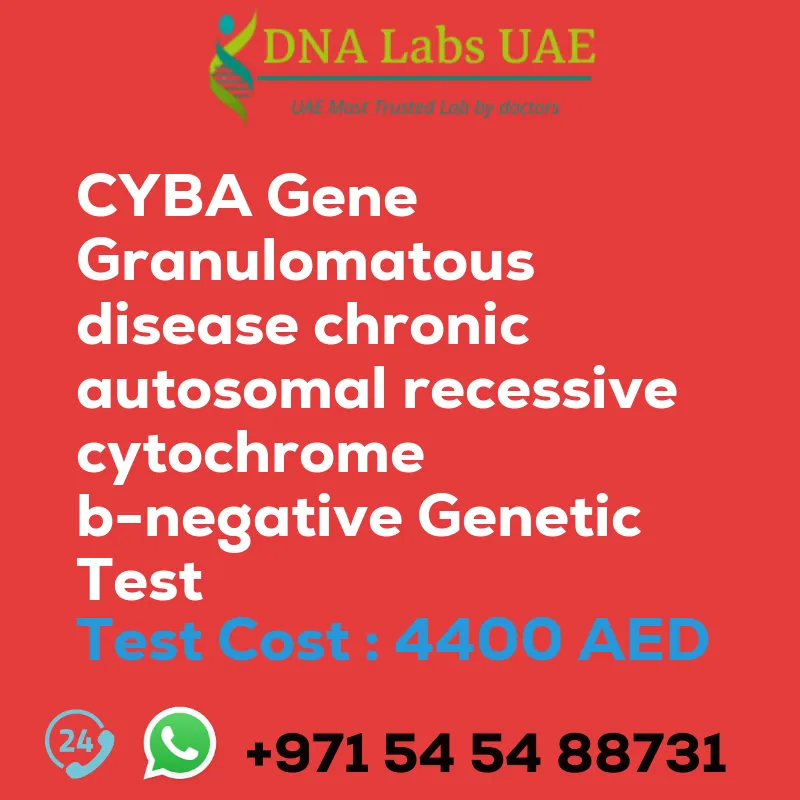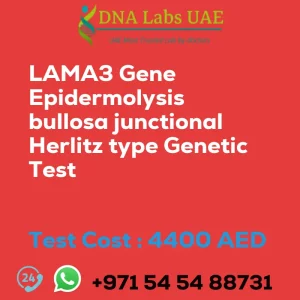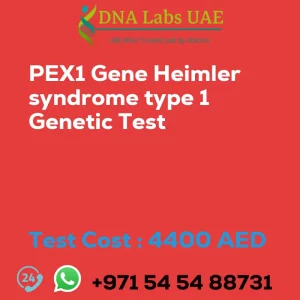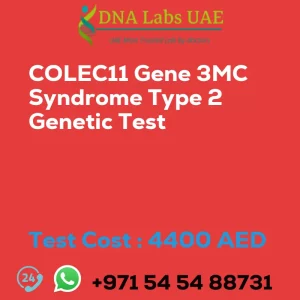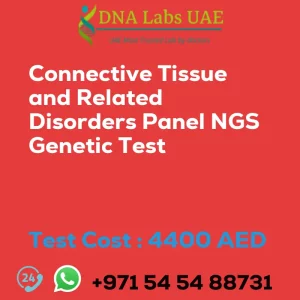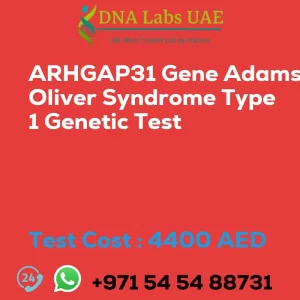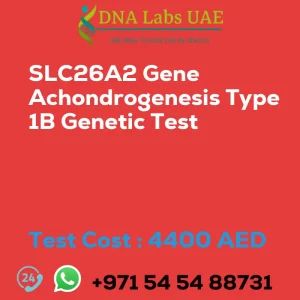CYBA Gene Granulomatous Disease Chronic Autosomal Recessive Cytochrome b-Negative Genetic Test
Welcome to DNA Labs UAE, where we offer the CYBA Gene Granulomatous Disease Chronic Autosomal Recessive Cytochrome b-Negative Genetic Test.
Test Details
The CYBA gene is associated with a condition called granulomatous disease, a chronic disorder characterized by the formation of granulomas (inflammatory nodules) in various organs of the body. This condition is inherited in an autosomal recessive manner, meaning that an individual must inherit two copies of the mutated gene (one from each parent) to develop the disease.
The term “cytochrome b-negative” refers to a specific type of granulomatous disease caused by mutations in the CYBA gene. The CYBA gene provides instructions for producing a protein called cytochrome b-245, which is an essential component of an enzyme complex involved in the immune system’s defense against infections. Mutations in the CYBA gene lead to a deficiency or absence of cytochrome b-245, impairing the immune system’s ability to fight off certain infections.
Test Components
- Price: 4400.0 AED
- Sample Condition: Blood or Extracted DNA or One drop Blood on FTA Card
- Report Delivery: 3 to 4 Weeks
- Method: NGS Technology
- Test Type: Osteology Dermatology Immunology Disorders
Referring Doctor and Test Department
This test is recommended by dermatologists and falls under the Genetics department.
Pre Test Information
Prior to undergoing the CYBA Gene Granulomatous Disease Chronic Autosomal Recessive Cytochrome b-Negative Genetic Test, it is important to provide the clinical history of the patient. Additionally, a genetic counseling session will be conducted to draw a pedigree chart of family members affected with the CYBA Gene Granulomatous Disease.
NGS Technology
Next-Generation Sequencing (NGS) is a genetic testing technique that allows for the simultaneous analysis of multiple genes, including the CYBA gene. NGS can identify mutations or variants in the CYBA gene that may be responsible for the granulomatous disease in an affected individual. This type of genetic testing can help with diagnosis, prognosis, and potentially guide treatment decisions for individuals with granulomatous disease.
Thank you for considering DNA Labs UAE for your genetic testing needs. If you have any further questions or would like to schedule an appointment, please contact us.
| Test Name | CYBA Gene Granulomatous disease chronic autosomal recessive cytochrome b-negative Genetic Test |
|---|---|
| Components | |
| Price | 4400.0 AED |
| Sample Condition | Blood or Extracted DNA or One drop Blood on FTA Card |
| Report Delivery | 3 to 4 Weeks |
| Method | NGS Technology |
| Test type | Osteology Dermatology Immunology Disorders |
| Doctor | Dermatologist |
| Test Department: | Genetics |
| Pre Test Information | Clinical History of Patient who is going for CYBA Gene Granulomatous disease, chronic, autosomal recessive, cytochrome b-negative NGS Genetic DNA Test. A Genetic Counselling session to draw a pedigree chart of family members affected with CYBA Gene Granulomatous disease, chronic, autosomal recessive, cytochrome b-negative NGS Genetic DNA Test gene CYBA |
| Test Details |
The CYBA gene is associated with a condition called granulomatous disease, which is a chronic disorder characterized by the formation of granulomas (inflammatory nodules) in various organs of the body. This condition is inherited in an autosomal recessive manner, meaning that an individual must inherit two copies of the mutated gene (one from each parent) to develop the disease. The term “cytochrome b-negative” refers to a specific type of granulomatous disease caused by mutations in the CYBA gene. The CYBA gene provides instructions for producing a protein called cytochrome b-245, which is an essential component of an enzyme complex involved in the immune system’s defense against infections. Mutations in the CYBA gene lead to a deficiency or absence of cytochrome b-245, impairing the immune system’s ability to fight off certain infections. NGS (Next-Generation Sequencing) is a genetic testing technique that allows for the simultaneous analysis of multiple genes, including the CYBA gene. NGS can identify mutations or variants in the CYBA gene that may be responsible for the granulomatous disease in an affected individual. This type of genetic testing can help with diagnosis, prognosis, and potentially guide treatment decisions for individuals with granulomatous disease. |

